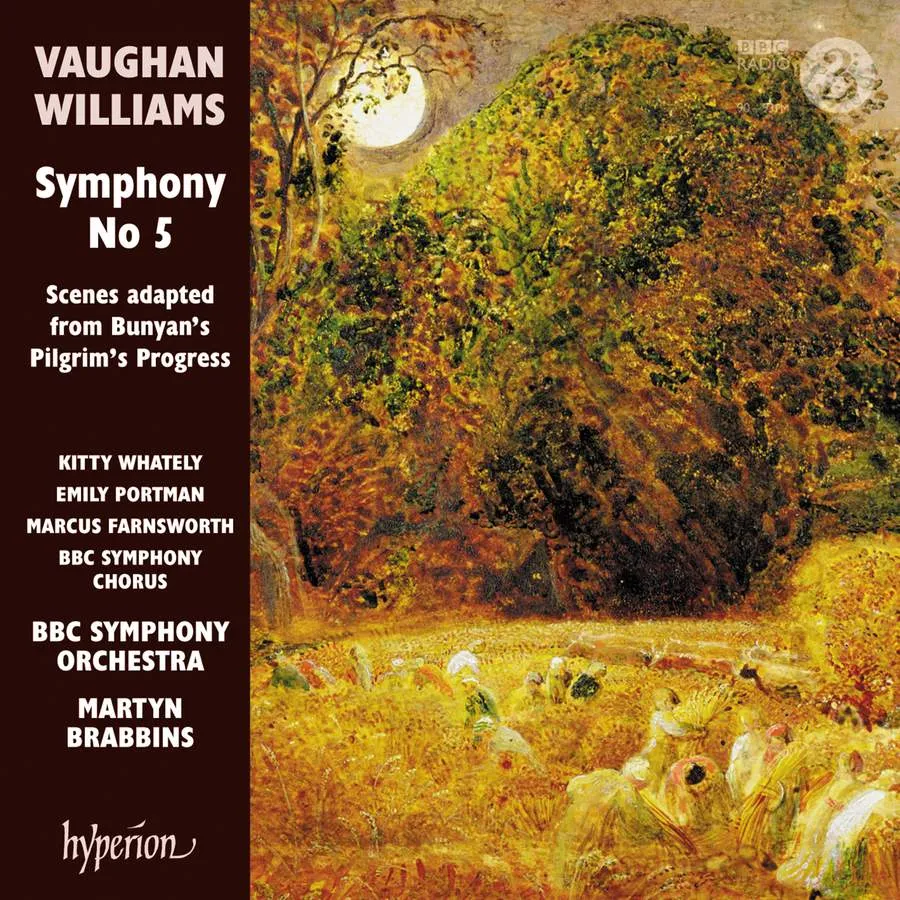
Vaughan Williams Symphony No. 5 in D major; Scenes Adapted from Bunyan's Pilgrim's Progress* *Kitty Whately (mezzo-soprano), *Christopher Bowen, *Tom Raskin (tenor), *Andrew Rupp (bass), *Marcus Farnsworth (baritone), *Georgina Wheatley (soprano); *BBC Symphony Chorus; BBC Symphony Orchestra/Martyn Brabbins Hyperion CDA68325 66:50 mins
Martyn Brabbins and his musicians generally give a glowing and contemplative account of Vaughan Williams Fifth Symphony (1943), its colours well captured in producer Andrew Keener’s fine recording. The second movement’s fleet scherzo, flowing but with cross-rhythms distinct like a wind tossing and turning various themes, serves as a fine contrast to the slower movements. Brabbins’s exceptionally slow Lento emphasises the third movement’s rapt quality, though its Animato middle section, only marginally quicker, suggests a slight cloud in contemplation rather than a moment of spiritual crisis. The finale’s reassuring flow, with a very marked rallentando before the return of the symphony’s opening theme, rounds off this beautiful if not definitive performance.
A good deal of music in the Fifth reached its final form in Vaughan William’s 1951 opera The Pilgrim’s Progress. Brabbins’s highly imaginative coupling is the premiere recording of the composer’s first treatment of John Bunyan’s allegory: the 1906 incidental music, written for an amateur production in Reigate, involved a small string orchestra, a church choir and several singer-actors. The hauntingly beautiful ‘The Angel’s Song’ (invented for the dramatisation, with no basis in Bunyan’s story) was later reworked as the opening air in Vaughan Williams’s earliest operatic treatment The Shepherds of the Delectable Mountains, while other cues were reworked in a 1943 radio dramatisation, then used in his 1951 opera; but a fair amount – including cues based on folk dances and songs – was not used again. Most disappointingly, Hyperion’s booklet gives scant information about this 1906 adaptation, not even suggesting where the unfamiliar cues might fit into Bunyan’s story, which seems particularly unhelpful since the editor of the score Brabbins performs here, Nathaniel G Lew, published an extensive and detailed article on the original production and its music back in 2003.
Read more about Vaughan Williams and his work here
Read more of our Vaughan Williams latest recording reviews here
Daniel Jaffé